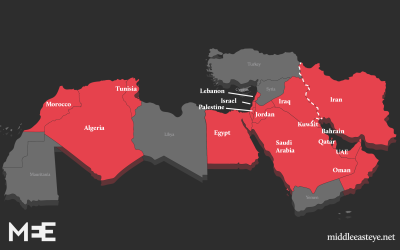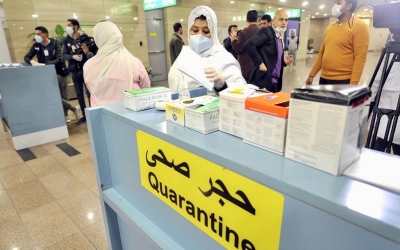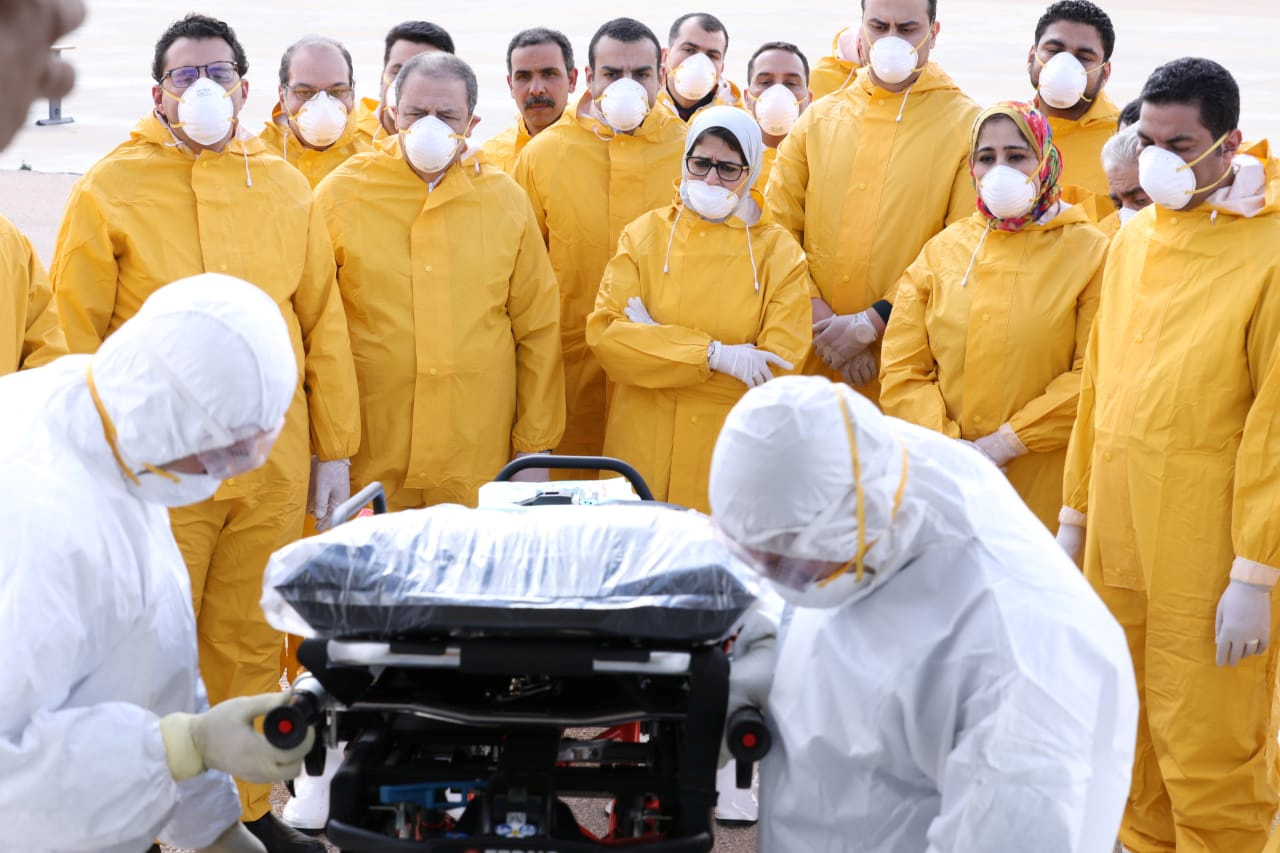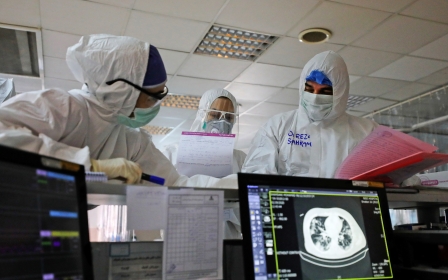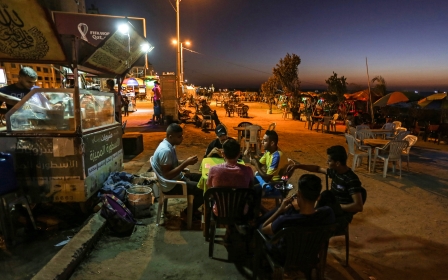Egypt's government criticised for lack of transparency regarding coronavirus
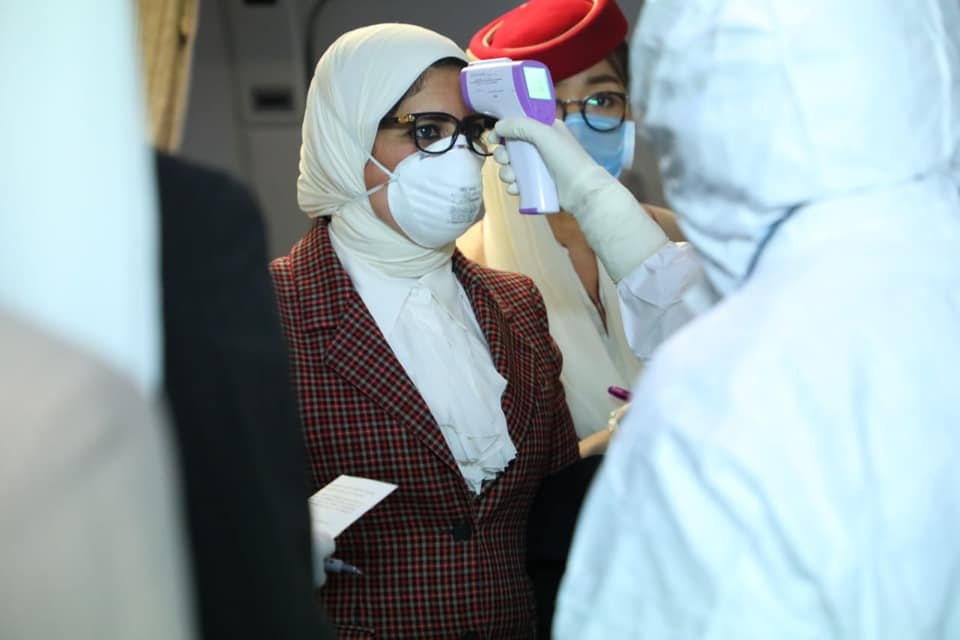
An Egyptian opposition group has denounced the government of President Abdel Fattah el-Sisi for how it has responded to the potential spread of the novel coronavirus in the North African country.
While Egypt has so far reported only two coronavirus cases, the government has been criticised for a lack of transparency regarding at least nine cases of people who had travelled from Egypt and have been diagnosed in Canada, France, and the United States.
Egypt reported its second case of coronavirus, also known as COVID-19, on Monday, less than a month after announcing the first confirmed case in the African continent.
The two cases, according to the health ministry, were foreign nationals who reported “minor symptoms.”
One case, reported on 14 February, was a Chinese national who fully recovered, a joint statement by the Egyptian health ministry and the World Health Organisation has said.
However, reports of people testing positive for the virus after returning from Egypt have led to speculation that the country may be at risk of a bigger outbreak and does not have the competence or transparency to deal with a crisis.
On Tuesday, the Egyptian National Action Group, an opposition organisation led by exiled liberal politician Ayman Nour, accused the Egyptian government of imposing “a blackout on the reality of the spread of coronavirus” in the country.
In a statement to Middle East Eye, the group claimed that the “foolish policies” of the government “have led to the spread of the disease both inside and outside Egypt.”
The statement added that: “This attitude makes the regime guilty of developing the epidemic in a 100-million populated country. It is also likely to transform Egypt into a high-risk country from an international perspective.”
Reports of infected people travelling from Egypt have led a number of countries to impose travel restrictions on those coming from the county.
Qatar on Monday said it had imposed a temporary ban on visitors from Egypt via transit points, while Kuwait added extra screening measures for travellers from Egypt, citing fears of COVID-19.
Health minister travels to China
Meanwhile, Egypt’s health minister Hala Zayed travelled to China on Sunday in a show of support for the virus's country of origin.
“The objective of the visit is to convey a message of solidarity from President Sisi with the Chinese President and people in this critical time,” she told Chinese media.
“The measures inside China have succeeded to a great extent to prevent the spread of the virus inside the country and worldwide,” the minister said, adding that her government has granted China one million masks as “a gift from Egypt”.
In return, the Chinese government gave Egypt 1,000 detective kits after the minister’s visit.
During Zayed's trip, Egypt’s ministry of tourism projected the Chinese flag on historical monuments, including the Citadel of Saladin in Cairo and the ancient temples of Karnak and Philae in the south, in a show of solidarity.
The minister’s visit has prompted fears that her delegation might be infected with the virus. But a spokesperson of the health ministry said Zayed and her delegation would be tested upon their arrival in Cairo, and would be quarantined as a precautionary measure.
Egypt downplays risk of outbreak
A spokesperson for the Egyptian cabinet, Nader Saad, told a TV talk show on Monday that his government is “fully prepared” for any outbreak.
“Worldwide indicators are showing the virus is decreasing, and we are not worried about its spread in Egypt,” he said.
Coronavirus has spread across the Middle East and North Africa, with new cases declared every day. Morocco reported its first case on Tuesday, while Saudi Arabia declared its first on Monday.
'Egypt does not have the capacity to detect new cases,'
-Mostafa Gawish, health policy analyst
“We have 26 hospitals in 27 cities, equipped with 500 beds, which can increase to 2,500 beds in case of a crisis,” the cabinet spokesperson told the Saudi Al-Hadath news channel.
Concerning accusations of misinformation, Saad said his government “does not have the luxury of concealing information about the virus,” and that all those who have been in contact with the infected foreigners who left Egypt have tested negative.
Egyptian health policy analyst Mostafa Gawish, also a former senior official at the health ministry, said that the most significant indicator of a country’s preparedness to deal with an outbreak is its ability to detect the cases.
"Egypt does not have the capacity to detect new cases," he told MEE
The first case, for example, was detected by China, which informed Egypt. The Egyptian government then started testing those who had been in touch with the patient.
The second case, a petroleum expert in Canada, was first detected in the North American country but the Egyptian government did not initially report the case.
The same applies to the six French and two Americans patients, Gawish said. “The Egyptian government's statements are vague and fail to provide crucial information about the cases," he said.
Hala Zayed, the health minister, said that nearly 1,500 people have tested negative, but did not reveal any details about the cases.
The minister downplayed the seriousness of the virus in an interview with pro-government host Amr Adeeb, prior to her visit to China.
"According to the WHO, 82 percent of coronavirus cases have been minor and recovered without hospitalisation," she said.
In February, the WHO reported that 80 percent of COVID-19 cases report only mild, flu-like symptoms.
Zayed added, correctly, that only a fraction of the infected cases globally have died, urging the audience to avoid panic.
"Most of those who died were above the age of 75 and had other chronic diseases, while many other cases do not report any symptoms at all," she said.
“It is unavoidable but we are prepared for the worst scenario,” she said.
Gawish said there are numerous rumours going around in Egypt about the virus, but the reason is people's distrust in government statements.
"The fear is real, and the reason is the lack of transparency."
Middle East Eye propose une couverture et une analyse indépendantes et incomparables du Moyen-Orient, de l’Afrique du Nord et d’autres régions du monde. Pour en savoir plus sur la reprise de ce contenu et les frais qui s’appliquent, veuillez remplir ce formulaire [en anglais]. Pour en savoir plus sur MEE, cliquez ici [en anglais].


